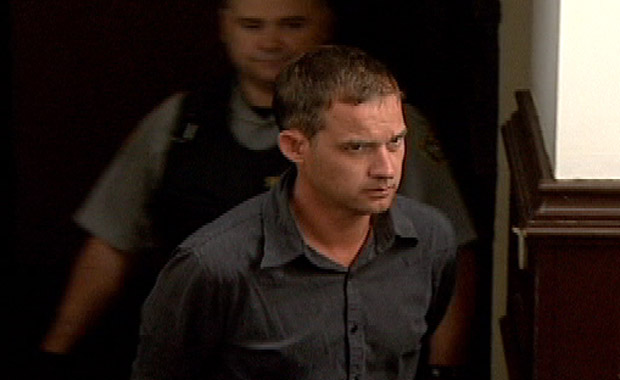RCMP investigating the murder of Paula Gallant waited more than four years for her husband to confess his crime.

While Jason Wayne MacRae admitted to strangling his wife to death Dec. 27, 2005, it wasn’t through any desire to atone for his crime.
It was an undercover officer that got the 37-year-old Halifax man to say he killed Gallant in the basement of her house and left her body in the trunk of her car.
“Over time,” Crown Attorney Denise Smith told reporters, “MacRae was led to believe he was part of a crime syndicate and ultimately confessed his crime to undercover officers, unbeknownst to their true identity as police.”
“Mr. Big” is an RCMP sting technique, involving an undercover officer(s) posing as a crime boss or gang member, convincing the suspect to detail or brag about transgressions, often murder.
A “target” does so hoping to show loyalty or gain trust, says criminologist Kouri Keenan.
Some even think Mr. Big will help rid them of their problems.
Keenan, a PhD student at Simon Fraser University’s School of Criminology, analyzed 81 cases where Mr. Big brought about a confession, for a study he co-authored with SFU professor Joan Brockman.
Most criminals – for that matter most Canadians – have never heard of this scenario, but that’s because it wasn’t until 2000 that the Supreme Court of Canada ruled publication bans covering Mr. Big could only remain in place for a period of one year after the preliminary hearing.
- Court in Ontario city struggling with gun crime closes over safety fears
- Sonya Massey: Deputy charged in fatal shooting worked for 6 agencies in 4 years
- Defence seeking six-year sentence for former fashion tycoon Peter Nygard
- Sonya Massey: Bodycam shows Illinois deputy shooting Black woman in her home
Mounties used Mr. Big to get MacRae’s admission, even a re-enactment of how he murdered his 36-year-old wife.

Get breaking National news
It was only revealed Wednesday in Nova Scotia Supreme Court, in the agreed statement of facts.
Two years ago an undercover officer gained the trust Penny Boudreau, of Bridgewater, N.S., and convinced her to reveal every detail of how she murdered her 12-year-old daughter, Karissa, in Jan. 2008.
The technique, Keenan says, is used when police lack sufficient evidence to charge a suspect and other investigation methods have failed.
He explains Mr. Big “tells (them) “˜We can make your criminal problems disappear, however, only upon verification of the details of your story.’”
The Mounties have to be convincing and will go to great lengths to “˜play the part,” even orchestrating staged kidnappings, beatings or “feigned murders.”
Questions have been raised in the past about the validity of confessions obtained this way.
Keenan assures this technique is not entrapment.
“It’s a post-offence undercover investigative technique… looking into a crime that has already occurred.”
Any crime committed at the behest of Mr. Big, won’t be used as evidence against the target.
In 2000, a Manitoba judge raised concerns that a target – Clayton George Mentuck – was vulnerable to suggestion because of his financial situation and the promise of money.
Mentuck, accused of murdering teenager Amanda Cook, bought into the ploy and at one point said he killed the girl.
He later recanted and denied this, trying to get out of the staged crime ring.
But an undercover officer, Keenan says, eventually convinced Mentuck to admit to the crime saying both of them “were on the line” with the crime boss.
Justice Allan MacInnes acquitted Mentuck, saying “the police must be aware that as the level of inducement increases, the risk of receiving a confession to an offence which one did not commit increases, and the reliability of the confession diminishes correspondingly.”
The description of events Mentuck gave weren’t much different than what was already known from the media.
In approximately 25 cases he examined for Keenan and Brockman’s study, RCMP lacked sufficient evidence to “corroborate” the confession.
“Wrongful convictions are an unfortunate, but very real consequence of our criminal justice system. It’s imperative we implement policies to limit the likelihood of eliciting a false confession,” says Keenan.
He says any confession police obtain using Mr. Big should be reviewed by a false-confessions expert.
Kouri Keenan’s study with Prof. Joan Brockman is titled Mr. Big: Exposing Undercover Investigations in Canada.



Comments